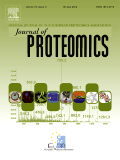
Proteome Science
Scope & Guideline
Exploring the Depths of Proteomic Research
Introduction
Aims and Scopes
- Proteomic Profiling of Diseases:
The journal extensively covers proteomic studies aimed at understanding the molecular underpinnings of diseases, including cancer, cardiovascular diseases, and neurodegenerative disorders. This includes identifying biomarkers and therapeutic targets. - Methodological Innovations in Proteomics:
A significant emphasis is placed on the development and application of novel proteomic techniques such as iTRAQ, TMT, and DIA-MS. These methodologies are critical for advancing quantitative proteomics and enhancing data accuracy. - Comparative Proteomics:
The journal frequently features comparative studies that analyze protein expression differences across various conditions, treatments, or disease states, providing insights into the biological significance of these alterations. - Integration of Multi-Omics Data:
There is a notable focus on integrative approaches that combine proteomics with other omics technologies (genomics, transcriptomics, metabolomics) to provide a holistic view of biological processes. - Environmental and Plant Proteomics:
Research on plant proteomics, especially regarding responses to environmental stressors, is a consistent theme, highlighting the ecological and agricultural implications of proteomic studies.
Trending and Emerging
- Spatial Proteomics:
Recent papers indicate a burgeoning interest in spatial proteomics, which explores protein localization within cells and tissues, particularly in the context of diseases. Understanding spatial dynamics is crucial for elucidating disease mechanisms. - Proteomics in Mental Health:
There is an increasing focus on the role of proteomics in understanding mental health conditions, such as depression. This trend is significant as it opens new avenues for biomarker discovery and therapeutic interventions. - Proteomics in Cancer Research:
A marked trend towards utilizing proteomics for cancer research is evident, with studies focusing on identifying biomarkers and therapeutic targets, as well as understanding tumor biology and resistance mechanisms. - Integrative Omics Approaches:
The integration of proteomics with transcriptomics and metabolomics is gaining traction, indicating a comprehensive approach to biological research that aims to understand complex biological systems. - Exosome and Microvesicle Proteomics:
Research on exosomes and microvesicles is emerging as a significant theme, as these entities are recognized for their role in intercellular communication and potential as biomarkers for various diseases.
Declining or Waning
- Basic Proteomic Techniques:
There appears to be a decrease in the publication of studies that solely focus on traditional proteomic techniques without incorporating advanced or hybrid methodologies, as researchers increasingly seek innovative approaches. - Animal Model Proteomics:
Research centered on animal models, particularly non-human species, has become less frequent, possibly as the focus shifts towards human clinical applications and translational research. - Single Protein Studies:
The trend of publishing studies that concentrate on the characterization of single proteins without broader biological context is declining, as studies increasingly aim for a systems biology approach. - Proteomic Studies in Less Common Diseases:
There is a noticeable reduction in studies related to less common or rare diseases, as the journal's focus shifts towards more prevalent health issues and their proteomic implications.
Similar Journals

BIOCHIMICA ET BIOPHYSICA ACTA-MOLECULAR BASIS OF DISEASE
Exploring the Foundations of Health and DiseaseBIOCHIMICA ET BIOPHYSICA ACTA-MOLECULAR BASIS OF DISEASE, published by Elsevier, is a pivotal journal in the fields of Molecular Biology and Molecular Medicine, recognized for its high impact factor and robust ranking within Scopus categories, holding prestigious quartiles in Q1 for both disciplines as of 2023. With ISSN 0925-4439 and E-ISSN 1879-260X, this journal fosters cutting-edge research from 1990 to 2025, addressing the critical molecular mechanisms underlying human diseases. Its wide-ranging scope includes original research articles, reviews, and advanced theoretical insights, serving as an essential resource for researchers, clinicians, and students alike. The journal is based in the Netherlands, at RADARWEG 29, 1043 NX AMSTERDAM, and while it does not currently offer an open-access option, it continues to maintain a strong presence in the scientific community, enhancing our understanding of molecular processes in health and disease.

PROTEOMICS
Unraveling the complexities of biological systems.PROTEOMICS is a leading journal focused on the rapidly evolving field of proteomics, published by WILEY in Germany. With a solid reputation established since its inception in 2001, it has continually contributed to the understanding of protein functions and interactions within biological systems. As part of its commitment to academic excellence, PROTEOMICS is ranked in the second quartile for both Biochemistry and Molecular Biology categories (2023), reflecting its significant influence in advancing research in these areas. Although it does not currently provide open access options, it remains a vital resource for researchers, professionals, and students keen to explore innovative methodologies and findings in proteomic research. By publishing groundbreaking studies that bridge theoretical knowledge with practical applications, PROTEOMICS plays a crucial role in enhancing our understanding of molecular processes and driving forward advancements in the life sciences.

Cell Reports Methods
Innovating Methodologies, Inspiring DiscoveriesCell Reports Methods is a cutting-edge journal published by CELL PRESS, focusing on innovative methodologies in the vast fields of biochemistry, genetics, biotechnology, and radiological sciences. Launched in 2021, it has rapidly ascended to attain a Q1 ranking across multiple disciplines in the latest 2023 metrics, reflecting its influential contribution to the scientific community. With an emphasis on practical and rigorous experimental approaches, this journal serves as a vital resource for researchers looking to advance their methodologies and collaborate on significant findings in their respective specialties. Despite not being an open-access publication, Cell Reports Methods ensures broad accessibility through institutional subscriptions, allowing researchers from various backgrounds to engage with high-quality scholarly work. The journal presents a unique platform for sharing insights from interdisciplinary methods that foster innovation and discovery, ultimately shaping the future of scientific research.

COMPARATIVE BIOCHEMISTRY AND PHYSIOLOGY B-BIOCHEMISTRY & MOLECULAR BIOLOGY
Connecting the Dots in Biochemistry and PhysiologyComparative Biochemistry and Physiology B: Biochemistry & Molecular Biology, published by Elsevier Science Inc, is a premier journal dedicated to the field of biochemistry and molecular biology with a specific focus on comparative analyses across various biological systems. Since its inception in 1971, the journal has made significant contributions to our understanding of the biochemical and physiological processes that differentiate organismal function across animal and aquatic life. The journal holds a commendable position in the academic community, evidenced by its 2023 rankings, which place it in the second quartile for Animal Science and Zoology and Aquatic Science, and the third quartile for both Biochemistry and Molecular Biology as well as Physiology. Researchers and students can access cutting-edge research through this highly respected publication, which continues to influence the future of biological sciences. While currently not an Open Access journal, its rigorous peer-review process ensures that only high-quality articles are disseminated, further solidifying its role as a critical resource for professionals and academics alike seeking to explore the intricate relationships between biochemical structures and physiological functions.

BIOINFORMATICS
Pioneering Insights in Biochemistry and Computational ScienceBIOINFORMATICS, published by Oxford University Press, is a leading journal in the realms of biochemistry, computational mathematics, and computer science, with a notable impact factor that underscores its significance in the field. Since its inception in 1985 and continuing through its expected convergence in 2024, the journal has maintained a prestigious reputation, proudly residing in the Q1 category across multiple disciplines, including molecular biology and statistics. With a Scopus ranking placing it within the top percentiles of its categories, BIOINFORMATICS serves as an essential platform for disseminating high-quality research that advances knowledge and innovation at the intersection of biology and computational sciences. This journal not only offers both subscription and open access options, ensuring wider availability of its cutting-edge research, but it has also become a crucial resource for researchers, professionals, and students aiming to stay at the forefront of bioinformatics and related fields. Explore the latest findings and trends that define the future of biological research through this esteemed publication, any inquiries regarding the journal can be directed to its offices located at Great Clarendon St, Oxford OX2 6DP, England.

Journal of Proteomics
Exploring the intricate world of proteins.Journal of Proteomics, published by Elsevier, is an esteemed peer-reviewed journal dedicated to advancing research in the field of proteomics, with broad implications for biochemistry and biophysics. Established in 2008, the journal has continuously evolved, embracing innovative methodologies and technologies that facilitate protein analysis from a variety of biological systems. With its current standing in the Q2 category for both biochemistry and biophysics as of 2023, it is recognized as a significant contributor to scientific literature. The journal publishes original research articles, reviews, and methodological advancements, providing invaluable insights for researchers, professionals, and students alike. Although it does not offer open access, the journal remains a crucial platform for disseminating knowledge that informs various applications, ranging from drug development to disease understanding. As it converges towards 2024, the Journal of Proteomics continues to solidify its role in shaping the future of proteomic research through rigorous scientific inquiry and innovation.

Clinical Proteomics
Advancing Proteomics for a Healthier TomorrowClinical Proteomics is a leading open-access journal, published by BMC since 2011, that aims to advance the field of proteomics by providing a platform for the dissemination of original research, critical reviews, and technological advancements in the analysis of proteins and their roles in health and disease. With an ISSN of 1542-6416 and E-ISSN 1559-0275, this esteemed journal covers a broad scope, converging years of research from 2004 to 2024. As a distinguished publication, it holds a Q1 ranking in Clinical Biochemistry and Q2 in both Molecular Biology and Molecular Medicine, reflecting its significance in the scientific community. Clinical Proteomics' commitment to open access ensures that its content is readily available to researchers, professionals, and students worldwide, facilitating the exchange of knowledge and fostering collaborative efforts in proteomic studies. Situated in the United Kingdom, this journal plays a pivotal role in shaping the future of biomedical research, appealing to anyone keen on the integration of proteomics in clinical practice and molecular investigation.

Comparative Biochemistry and Physiology D-Genomics & Proteomics
Innovating Biological Discoveries with High-Impact ResearchComparative Biochemistry and Physiology D-Genomics & Proteomics, published by Elsevier Science Inc, is a premier journal in the realm of molecular biology and comparative physiology, with a focus on genomic and proteomic sciences. Recognized for its high-impact contributions, it holds a Q1 ranking in Animal Science and Zoology and was established with the vision of bridging gaps in our understanding of biological systems through experimental and comparative approaches. With an impressive Scopus ranking, this journal not only ranks among the top 12% in Animal Science and Zoology but also demonstrates commendable standings across various categories including Aquatic Science and Molecular Biology. The journal’s commitment to disseminating high-quality research makes it an essential resource for researchers, professionals, and students alike, allowing them to access critical studies that influence advancements in genomics and proteomics. While it operates under a traditional subscription model, its impactful findings are crucial for those aiming to enrich their knowledge and research capabilities in these pivotal scientific fields. Join us in exploring the transformative insights and developments that this esteemed journal has to offer for the study of genomics and proteomics.

Database-The Journal of Biological Databases and Curation
Connecting Data and Discovery in Life SciencesDatabase - The Journal of Biological Databases and Curation, published by Oxford University Press, stands at the forefront of the rapidly evolving fields of biological data management and curation. Since its inception in 2009, this open access journal has become a pivotal resource for researchers and professionals eager to explore the intricate world of biological databases. With an impressive impact factor, it ranks in the Q1 quartile across significant disciplines such as Agricultural and Biological Sciences, Biochemistry, Genetics and Molecular Biology, Information Systems, and Medicine as of 2023. This prestigious standing reflects its commitment to high-quality research and innovation. The journal not only provides a platform for original research articles, reviews, and case studies but also aims to facilitate discussion on best practices in database design and curation. By bridging the gap between data generation and utilization, it plays an essential role in enhancing the accessibility and usability of biological data, making it indispensable for scholars and students who are navigating these complex domains.

Precision Clinical Medicine
Catalyzing innovations in precision medicine.Precision Clinical Medicine, published by Oxford University Press, is an esteemed open-access journal that has been at the forefront of clinical research since its inception in 2018. With an ISSN of 2096-5303, this journal specializes in the rapidly evolving field of precision medicine, which aims to tailor healthcare to individual patient characteristics, needs, and preferences. As a testament to its influence, Precision Clinical Medicine holds a remarkable rank of #34 out of 636 in the General Medicine category on Scopus, placing it within the 94th percentile of its field and earning a prestigious Q1 rating in 2023. Based in the United Kingdom, the journal not only provides open access content, ensuring that groundbreaking research is widely disseminated, but also serves as a crucial platform for innovations and discussions that shape modern medical practices. Researchers, professionals, and students alike will find valuable insights and influential studies that drive the future of personalized healthcare within its pages.